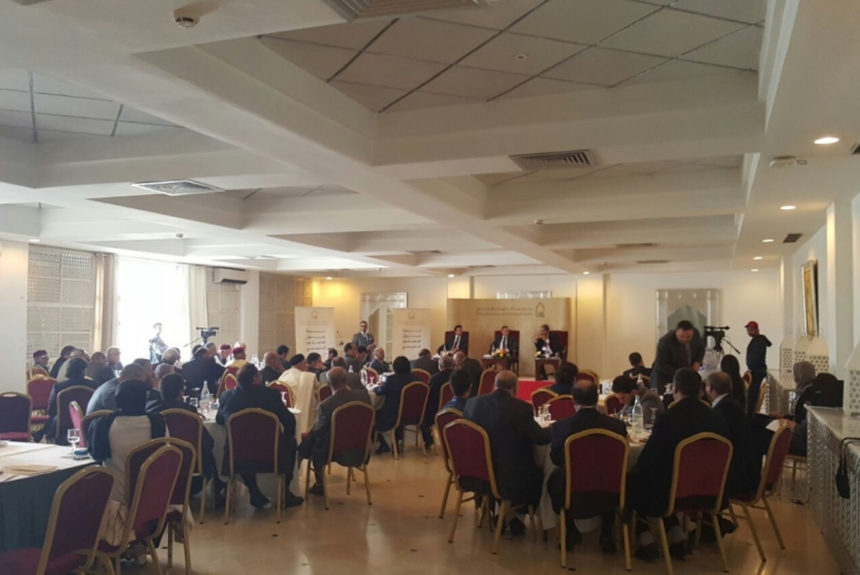Tunis, March 11, 2016
LIAS opens the second day of the conference discussing divergences in the latest draft of the Libyan Constitution, a lifetime historical event that will direct the lives of future generations for years and years to come. Today’s main debate tackles major articles on “Local Governance and Resources,” “Judicial Authority” and “Rights and Liberties.”
“LIAS has always had a lead position in coping with different stages of the drafting process from its inception onwards,” says Ali Hamouda in his opening keynote to the attendees. On the chapter “Local Governance and Resources” there was a widespread agreement between almost all participants that key models of decentralization like the ones adopted by Morocco and Tunisia are basic groundwork for future unity, stability and democratization. Although some of the attendees expressed openly their fear of state division and power abuse from local authorities, the main arguments headed for this model as the sole form of development for the near future. “Only effective decentralization can ensure in the short and long terms the unity of the country, social stability and more importantly demographic permanence,” says Ibrahim Albaba member of the constitutional drafting committee.
According to Doctor Omar Naass, there is no fear of transgression or abuse from local authorities as long as we aim for a stable, unified and law-governed Libya. “It is justice and only justice that shall prevail and triumph.” On the chapter “Judicial Authority,” the session was paneled by prominent legal speakers from the constitutional assembly Doctors Hedi Abou Hamra, Dhaou Almansouri and Touati Bochahh, each discussing from a different angle the importance of separating the constitutional from the legal and baking this up from the key chapter on “Rights and Liberties.” In the main, speakers insisted that all articles in this chapter have to follow guidelines issued by international conventions and framework. Basically legal justice is secured beyond any doubt or suspicion from the preface of the constitution via all related chapters and articles, explained Doctor Hedi Abou Hamra. “We insist on the proposition of a constitutional article that delineates time limit for the temporary arrest of the accused,” “we also maintain that the basic structure and components of the Supreme Court should come from qualified law personalities and not judiciaries,” added one of the guest participants. More importantly, there was ample discussion on constitutional court, its composition, work strategies and convenience.


